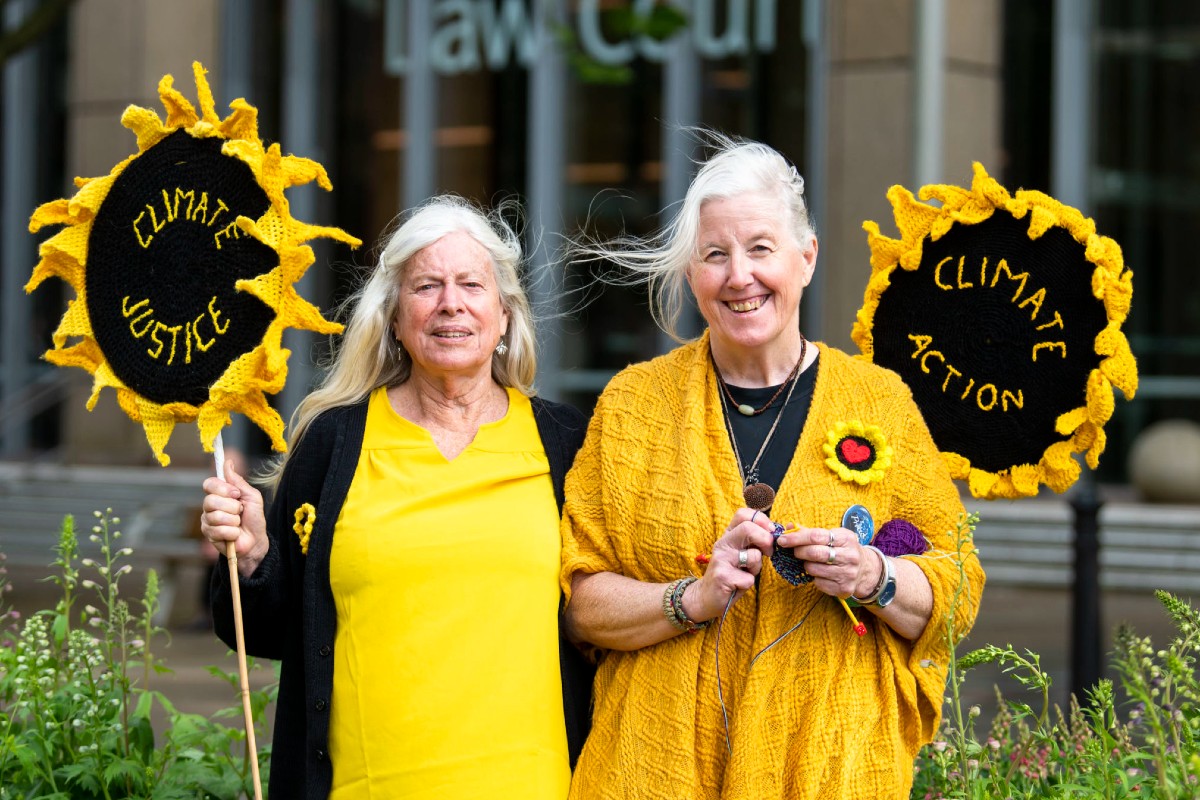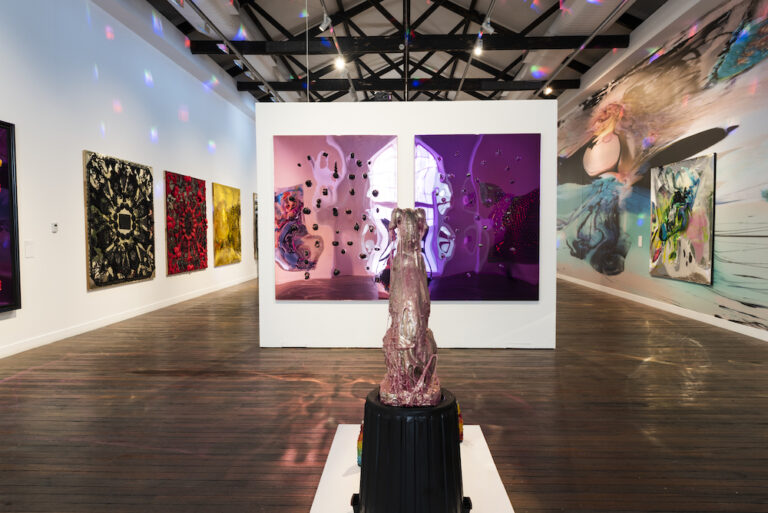
NSW Labor sticks to supporting harsh anti-protest laws

Image: Plaintiffs Helen and Dom outside the NSW Supreme Court. Photo: Environmental Defenders Office.
By WENDY BACON
NSW Labor maintained its support for harsh NSW anti-protest laws at its state conference last weekend, disappointing a broad coalition of civil liberties and environmental groups.
A motion by the Australian Services Union to scrap the laws was defeated by a majority of conference delegates. If it had passed, Labor would have taken a policy to repeal the laws to the state election in March 2023.
NSW Council for Civil Liberties says NSW Labor has failed an important test in the lead-up to the election.

The debate highlighted divisions within NSW Labor. Groups inside the NSW Labor Party including several local branches and unions supported a campaign to win support for the motion. But in a counter move, Deputy Leader Prue Car successfully moved an amendment that defeated the purpose of the motion and fed into propaganda that the laws are directed to violent protest and do not impact on peaceful direct action.

At stake is the future of the draconian Roads and Crimes Legislation Amendment Bill 2022 which passed into law in April following climate crisis protests that blocked roads to Port Botany and Spit Bridge. This law makes it a crime, punishable by up to 2 years in jail and a $22,000 fine, to even briefly obstruct a road or block the entrance to train stations, roads, ports and public and private infrastructure.
The law, which was introduced without consultation and with only one day’s notice, is one of the most oppressive anti-protest laws ever passed in Australia.
Car’s counter-amendment justified support for the laws by referring to a successful Labor amendment that carved out industrial action from the laws and stated: “destructive and violent protest actions cannot be condoned by government”.
Those calling for repeal of the laws disagreed that the ‘carve-out’ for industrial action was wide enough to capture protest actions traditionally mounted by unions. It does not include protests where unionists take action without court approval or with others in support of social justice causes.
In moving his motion, the ASU’s Angus McFarland said, “Progress comes from protest: the eight-hour day; the campaign for equal pay; Medicare; native title; marriage equality; the NDIS; action on climate change; the right to vote; the right to have a voice. We should have pride, not shame, in protest.” Many of campaigns he mentioned have included protests which used peaceful direct action strategies such as lying down on roads or blocking entrances to gates or buildings. McFarland’s speech received loud applause.
Following the defeat of the ASU motion, NSW Council for Civil Liberties President, Josh Pallas issued a media release which stated, “While the law was introduced by the government, it passed with Labor’s support. The ASU’s motion put to the conference gave Labor an opportunity to restore confidence in its support for the right to protest. But they failed in this important test.”
Labor hides behind Knitting Nannas court challenge
Meanwhile the campaign against the laws continued in the courts.
Last week, two Knitting Nanas protesters Helen and Dom, represented by the NSW Environmental Defenders’ Office, launched a Supreme Court challenge to the anti-protest laws on grounds that they are unconstitutional because they interfere with an implied right to political communication and assembly.










